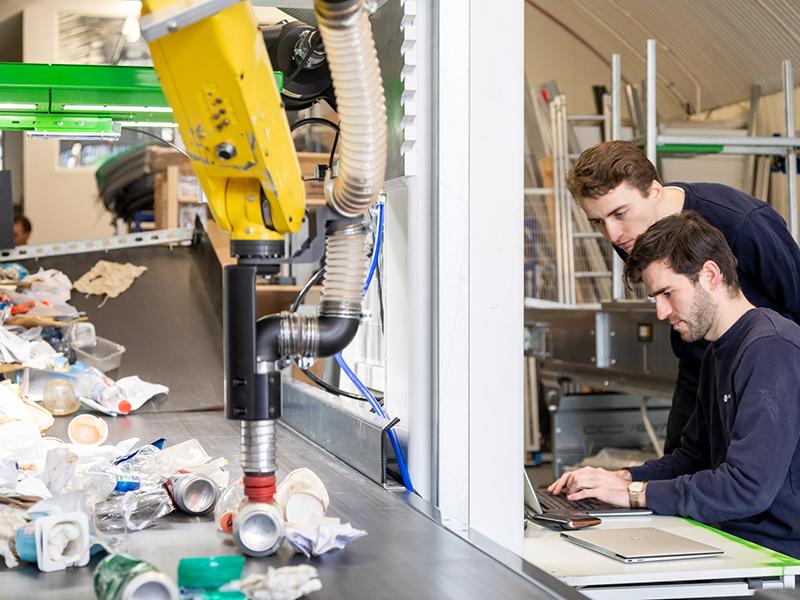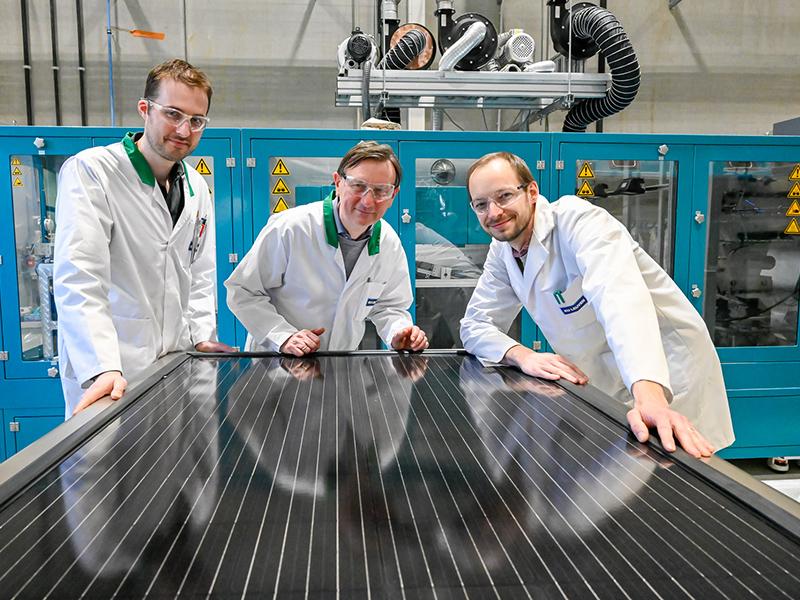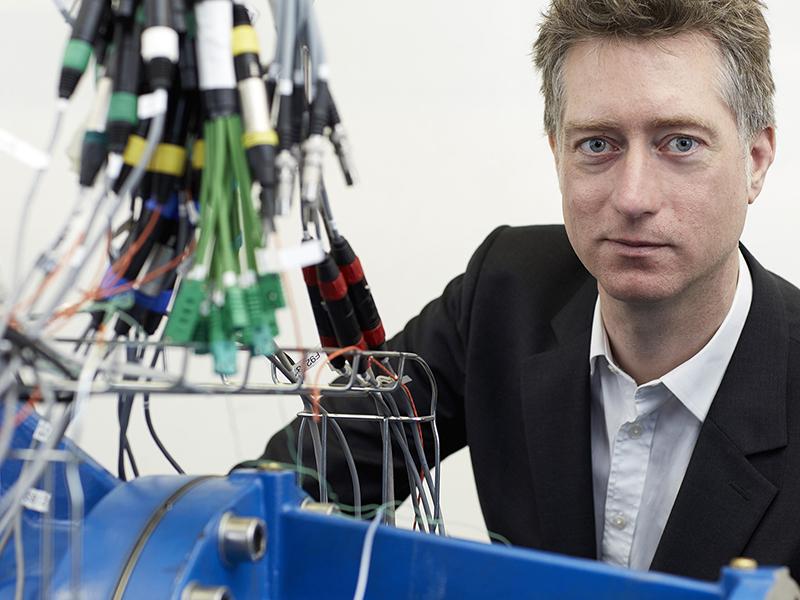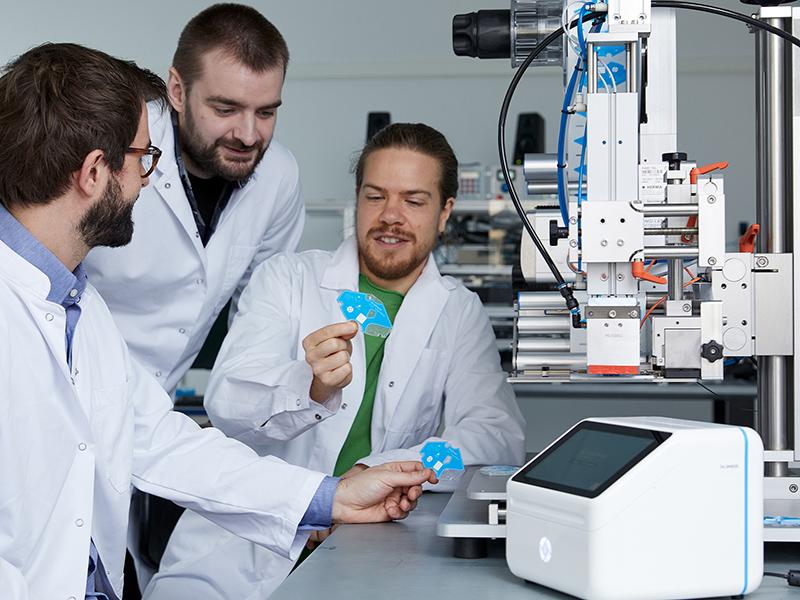Our topics
To begin with, the Observatory will prioritise ten topics identified as highly relevant during the consultation process with our stakeholders. But this is just the start. The list is not exhaustive, and many other topics could be addressed by the Observatory in the future. As a dynamic platform, the Observatory remains open to address further topics suggested by our stakeholders and innovation experts as technologies emerge and the needs of society evolve.
- 1. Innovation and UN Sustainable Development Goals
-

The EPO is fully committed to the UN Paris Agreement, the UN Sustainable Development Goals (SDGs) and the European Green Deal. Achieving the ambitious targets of these initiatives requires huge investment and R&D efforts to support the advancement and rollout of green technologies, including clean energy solutions. The Observatory contributes to reinforcing the links between IP, innovation and sustainability by publishing analyses and disseminating knowledge to a wider audience.
- 2. Climate and energy
-

The EPO, and the national offices of EPO member states, are at the forefront of the creation of new technologies. This enables them to help measure progress made in the innovation required to achieve net-zero emissions within the European Union by 2050 – a core goal of the European Green Deal. As an aid to the analysis and monitoring of trends across technology fields, patent data can inform investment decisions. To promote the development of related new tools and partnerships, the Observatory publishes analyses and provides a forum where the results of these initiatives will be regularly presented and discussed.
In 2024, we will publish two studies on the topic.
- a joint study on the commercialisation of technologies that can support the goals set out in the European Green Deal. The study, prepared in collaboration with the European Investment Bank, will include a survey of a large sample of European SMEs and larger companies that have been filing patent applications for sustainable technologies. The Observatory will document both the companies' achievements and the challenges they face in commercialising inventions in Europe, with a principal focus on financing issues and strategies.
- a study on water technologies, which will provide the basis for a new Espacenet platform on the topic.
- 3. Focus on startups
-

Startups are crucial to the continuous development of the innovation ecosystem. They regularly become high-growth technology businesses, bringing not only innovation but also employment to our economies. The Observatory addresses and explores how:
- startups use IP rights (IPRs) to foster innovative solutions
- these IPRs reward and encourage investment
- European patents help startups succeed and attract venture capital funds to scale up
The Observatory also leverages the power of patent knowledge to provide investors and other stakeholders with unique insights into the innovation community.
Our Deep Tech Finder is a new mapping tool to help investors locate high-potential European startups with patented innovations. Additionally, the Observatory will keep startups up to date with the latest IP information, including the new possibilities presented by the Unitary Patent.
- 4. Focus on SMEs
-

Smaller entities are the backbone of the European economy, constituting 99% of EU businesses, employing two out of every three employees, and producing 57% of the EU’s GDP. A major goal of the EPO is to support the development and growth of European SMEs by helping them obtain sound patent protection that enables them to commercialise their intellectual assets throughout Europe. Hence the importance of the Unitary Patent system, which provides broader patent protection at a lower cost and makes Europe more attractive to innovators and investors.
Considering the limited resources that smaller entities have at their disposal, well-designed and easy-to-access training is crucial if they are to acquire the information and know-how they need. This is why, in close liaison with the European Patent Academy, the Observatory will present a set of tools and learning materials specifically for SMEs. Regular monitoring of the main trends in patenting activity by SMEs will help promote success stories and identify gaps where further action is needed.
- 5. Focus on European universities: from innovation to commercialisation
-

Though European universities and public research organisations (PROs) do use European patents to commercialise their inventions, there remain significant barriers to commercialisation and the transfer of knowledge and technology to industry. This often leaves European universities and PROs at a disadvantage compared to those located elsewhere. The Observatory will present a comprehensive picture covering every possible step of European university innovation processes, identify all available sources of support (especially at European level) and provide tools to enable better scouting for partnerships.
To this end, a comprehensive study and a dedicated online dashboard will be made available in the second half of 2024, followed by various activities with a focus on:
- leveraging university expertise and showcasing its role in shaping technology trends and case studies
- reporting and shedding light on patented inventions stemming from universities
- measuring the impact of commercialising university inventions and of follow-up innovation
- measuring the impact of universities on local innovation ecosystems
- monitoring challenges and best practices in universities' use of the European patent system
- 6. Improving mapping and knowledge of innovation finance
-

The development of favourable conditions for innovation is a top priority for many governments, and significant financial means are allocated for this purpose. However, access to sufficient financial resources seems to remain a major limiting factor, despite the willingness of many economic actors to invest in the innovation process. Although there is extensive empirical evidence showing that the ownership of at least one patent represents a very useful tool in attracting investments at different stages of development, in Europe it is still problematic to consider a patent an important asset to attract venture capital, especially when compared to other competing regions. The Observatory:
- investigates the main hurdles that inventors face in trying to access financial means
- explores which changes could be envisaged to put Europe on a par with other competing economic regions
- addresses how to disseminate relevant information among smaller economic actors
- identifies potential solutions together with experts and stakeholders from innovation and financial circles
A main event on this topic will take place during the second semester of 2024.
- 7. Diversity and inclusion in innovation
-

Strengthening diversity and inclusion is an important societal goal. To support this, the Observatory leverages the EPO’s wealth of data to identify gaps requiring action and contributes to raising awareness. Our forum will host discussions on best practices to achieve greater diversity in the innovation ecosystem and promote the inclusion of under-represented groups. Studies during the second semester of 2024 will advance the discussion further by aiming to:
- improve understanding of where STEM education and career paths need to be opened up to women
- identify gaps and the actors concerned, especially among young people
The Observatory helps address all aspects of diversity and inclusion, including those affecting people living with disability.
- 8. Patents in the health sector
-

Innovation in healthcare is a major driver of patenting activity across fields such as pharmaceuticals, biotechnology and medical technology as well as digital communication and computer technology. Patents are essential for safeguarding R&D investments, which are particularly important in the health sector. In light of the COVID-19 pandemic, medical technologies have captured the public imagination like never before. By the end of January 2024, the Observatory will:
- publish a comprehensive study on innovation in the fight against cancer, tracking patenting trends in all related technologies, including those relevant to therapies and diagnostics
- release an Espacenet platform that identifies the patents in this field
By foregrounding new perspectives and opening the door to several stakeholders to participate in the study and platform, the Observatory is taking a holistic and balanced approach to this important topic and contributing to the fight against cancer.
- 9. Space-related innovation
-

By its very nature, the space sector generates a lot of innovation, and several important inventions stemming from space research have helped improve our daily lives (such as advances in semiconductors, LEDs, CAT scanners and scratch-resistant glass, amongst many other things). Moreover, global space sector activity has intensified and diversified considerably over the past decade. Technological innovations are driving down the cost of access to and the use of outer space, enabling more missions and applications. As new players and more countries become involved, private capital flows into the sector are increasing. Today’s space sector encompasses a diverse, global set of public and private actors, all of which engage in a variety of upstream and downstream activities.
The Observatory will contribute to a deeper monitoring of the technological developments in this area, opening up collaboration to a greater number of interested partners.
- 10. Standards and patents
-

Technical standards ensure interoperability and support the digitalisation of economies, which in turn fosters further innovation and growth. To help ensure healthy competition in the innovation ecosystem, the patent system promotes the early disclosure of innovative technical solutions, enabling the exchange of technical knowledge that can then be used in the development of standards.
Given the economic value and strategic importance attached to patents, which are key to Europe's future competitiveness, the Observatory examines how standards and patents interrelate. It monitors trends in different technological sectors, identifies possible gaps through fact-based analysis and studies, and supports public entities in taking informed decisions in this complex area.
Contact us
If you have questions or would like to contribute to our work, we would be pleased to hear from you:
observatory@epo.org